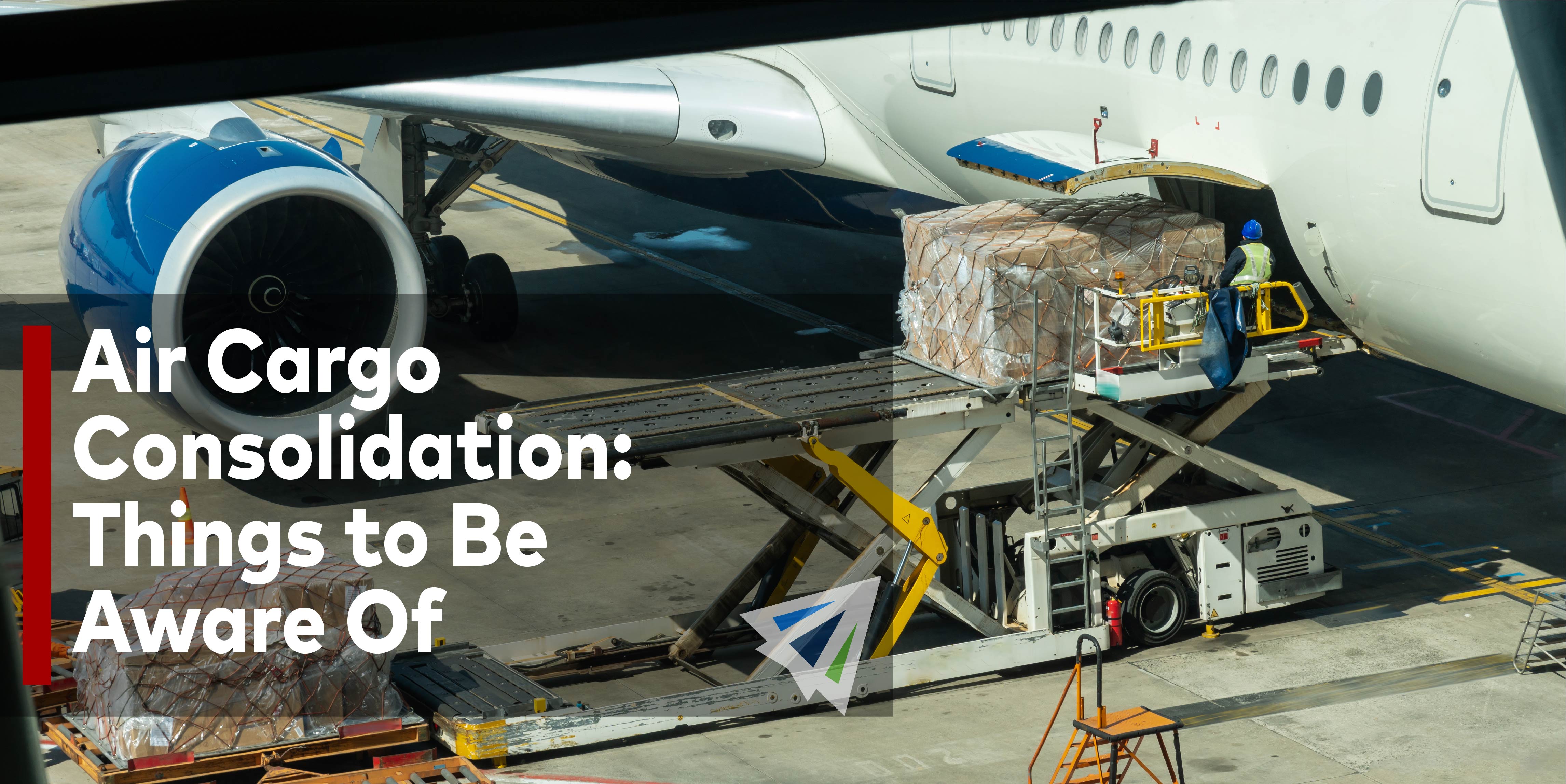Air shipping is gaining more and more attention as time goes on. The demand for frequent deliveries, delivery speed, and growth in international business expansion is pushing companies to have more efficient shipping options for customers. Ultimately, as the fasted mode of shipping, air transportation often proves to be the best solution for companies looking to expand their international customer reach.
This brings a ton of questions into the mix – is air cargo cheaper than ocean freight? How frequently can/should you ship air cargo? How much faster can your cargo make it to its destination?
As with many other shipping services, air cargo undergoes consolidation with other peoples’ cargo (unless you’re getting a chartered cargo flight for hundreds-of-thousands-of-dollars…) This can put unease in the minds of shippers regarding safety, risk of damage, timing, and ultimate costs.
Air Cargo Consolidation: Things to Be Aware Of
Cargo consolidation is ubiquitous – it’s how the international transportation industry operates. When it comes to steamship lines for ocean shipments, a vessel waits until it is adequately loaded (often in surplus of 10,000 to 20,000 TEU’s) before it departs.
Fortunately, aircraft are much smaller and require significantly less cargo to be ready for departure. The only caveat is that there is, on average, less air cargo than ocean cargo as well as significantly more airplanes than ocean vessel, which can lead to dilution.
In air cargo consolidation, all of your cargo aboard the plane operates under the same Master Bill Of Lading between the carrier and your freight forwarder, but each of your individual shipments have their own associated House Bill Of Lading to keep it organized.
Here are some things to be aware of when it comes to air cargo consolidation:
Low Supply Equals Less Options
Just like with ocean shipping, an aircraft will not depart until it is loaded with the necessary amount of cargo to make the move worthwhile. Generally, this isn’t a problem. The demand is usually high enough to fill airplanes up with ease, making it a relatively stress-free shipping mode.
Though from time-to-time, certain flight routes with lower shipment counts will cause a delay in aircraft departure as the carrier waits for air cargo space to be filled by other shippers. If you ship to a very unpopular region of the world, the chances are at least higher than you will experience a delay such as this during valley seasons.
Speed vs. Cost Tradeoff
we can’t speak into this universally, as each shipment will be different depending on the location, dates of departure/arrival, type of cargo, and dimensions, but usually air cargo is more expensive than ocean cargo.
Think about it this way – you’re paying a premium for the luxury of immediate shipping services. While air freight is an excellent option for getting cargo out the door quickly and efficiently, it also means you will be incurring significantly higher shipping costs. Whether that tradeoff is worth it is ultimately based on the market you operate in. Do your customers need products on demand, or can simple forecasting and inventory management practices make ocean shipping a more affordable transportation solution for your company?
Limited Options Without TSA Known Shipper
Your air cargo options are limited to cargo-only aircrafts. These airplanes are specifically designed to transport cargo alone, and while much of the shipping industry relies on transportation via these vessels, there are multiple drawbacks to having them as your only available option.
Returning to the consolidation example…A cargo aircraft has a lot of room for cargo. That also means it needs a lot of shipments to make a trip worthwhile. If you’re shipping in a valley season or to an unpopular region of the world, chances are high that a cargo-only aircraft may be delayed as they wait for additional cargo to consolidate.
Also, there is often only one flight option per day when it comes to cargo aircraft (depending on where you’re shipping to). If that flight is either empty or overbooked, you’ll be left waiting around for the next available flight.
With TSA Known Shipper status, U.S.-based shippers are afforded the luxury of shipping cargo on passenger aircraft as well as cargo aircraft. In some cases, this can give shippers 10x the options of unknown shippers, making it worthwhile to check if you’re eligible for the TSA Known Shipper program.
Our team at Interlog USA would be happy to answer and additional questions you might have, so feel free to reach out to us!
